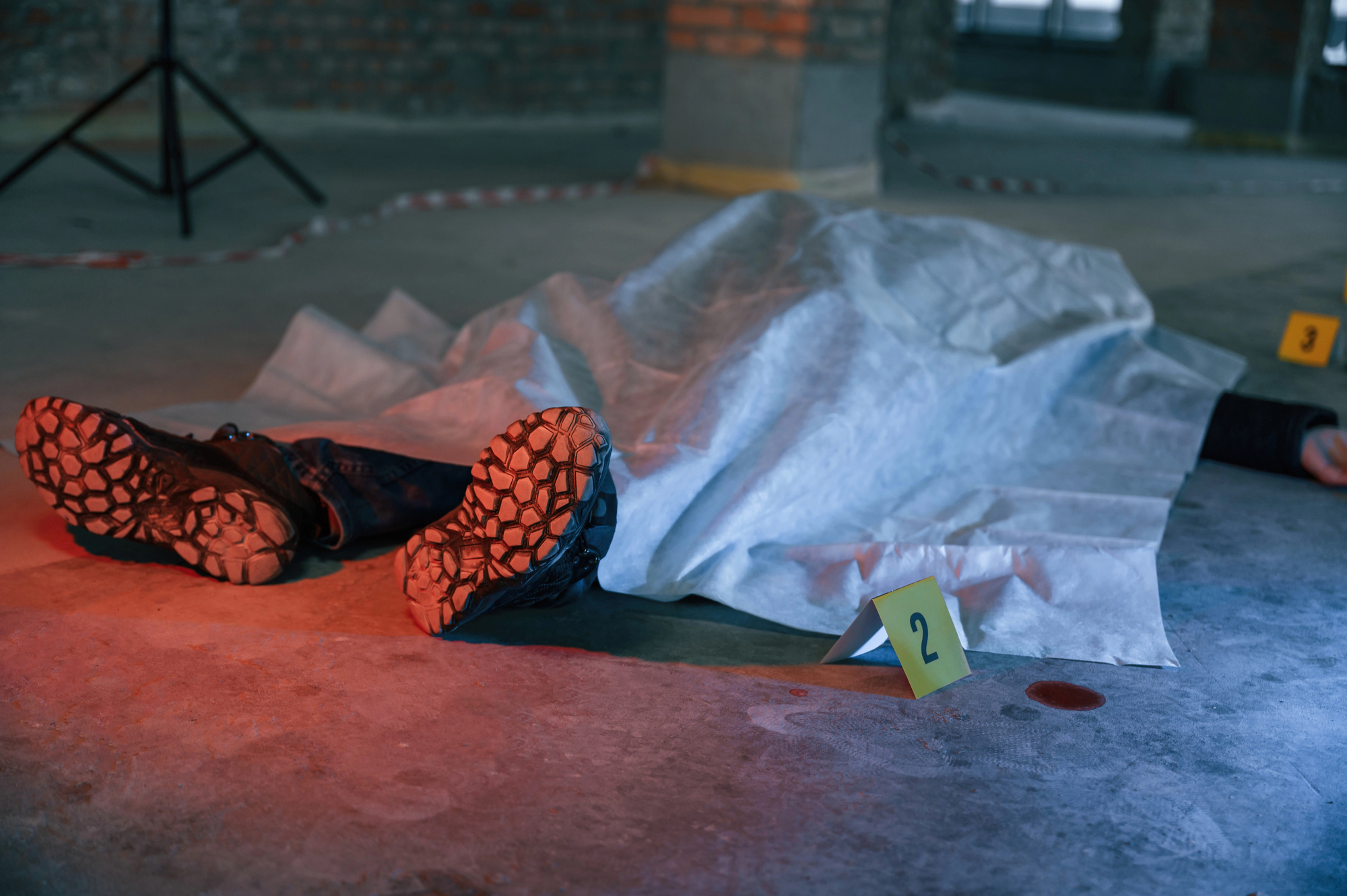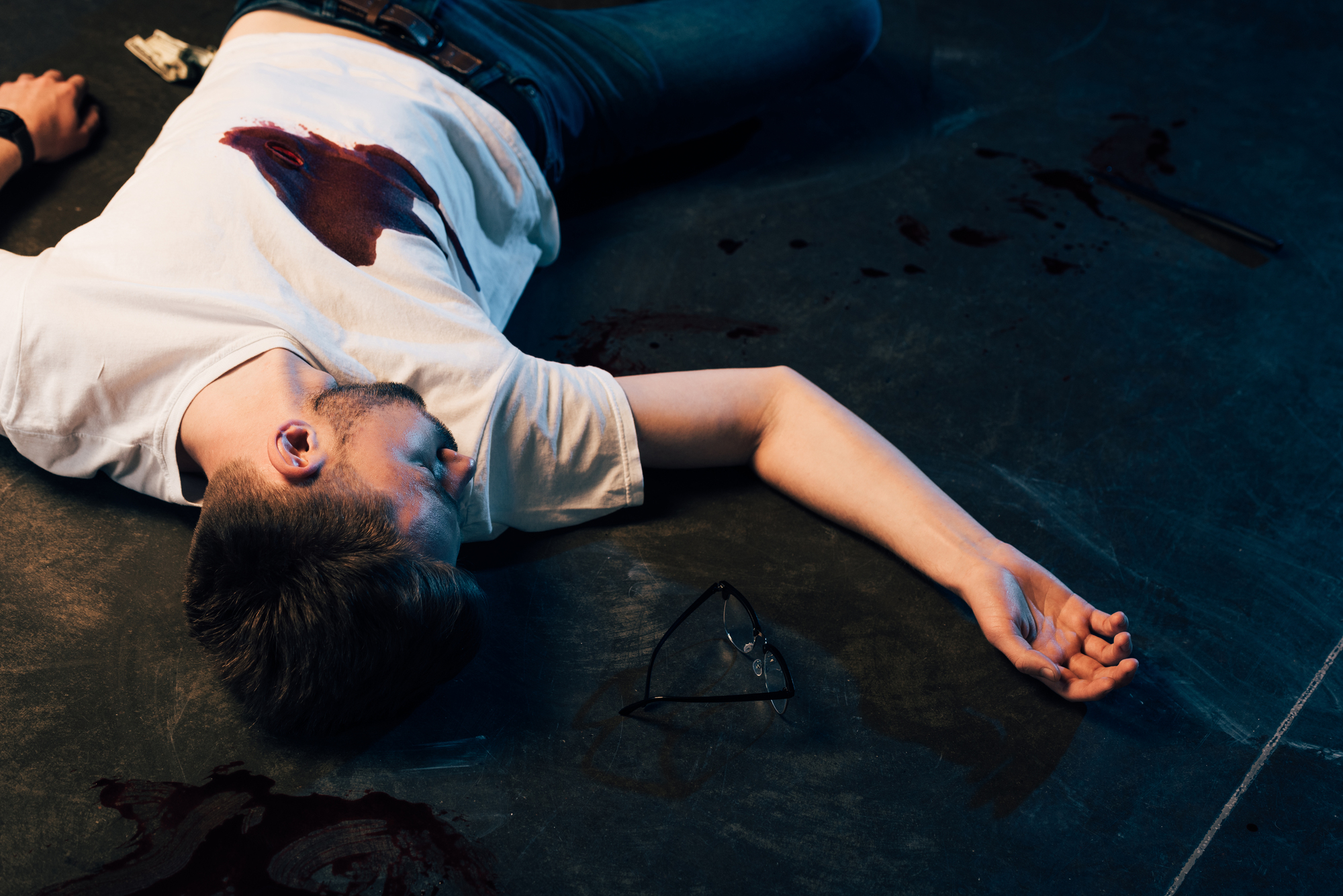Manslaughter Defence Lawyers in Calgary
Manslaughter is when irrespective of if murder is intended, an individual causes the death of another by (a) means of an unlawful act; (b) criminal negligence; (c) causing that human being, by threats or fear of violence or by deception, to do anything that causes his death.
This is a grave indictable offence under the Criminal Code with a maximum sentence of life imprisonment.
Manslaughter is covered under s.234 and s.236 of the Criminal Code, found in Part VIII.
Key Takeaways
- Manslaughter is a severe offence and is prosecuted by indictment.
- The maximum sentence is incarceration for life.
- In the case that manslaughter is committed with a firearm, there is a minimum sentence of 4 years imprisonment.
- Manslaughter is a very serious offence, and the severity of the offence will often result in challenges to secure bail.
- If bail is secured then potential bail conditions may include, prohibition on alcohol, possession of weapons, a curfew and refraining from contacting any potential witnesses.
- Manslaughter charges can be beaten. Contact a lawyer for assistance in determining the best strategy for you.
How can a manslaughter lawyer in Calgary help?
There are numerous advantages to having a diligent lawyer when fighting manslaughter charges. A lawyer will provide pre-charge legal advice and will help you in conversations with law enforcement to protect you against self-incrimination.
Furthermore, a lawyer will be dedicated to helping you beat the charges. They will gather evidence, interview witnesses, and retain expert witnesses if need be. The vast experience that our lawyers come with will aid you in navigating the criminal justice system and court processes and provide an advantage when they represent you during trial.
Manslaughter Charge in the Criminal Code of Canada
The Criminal Code offers a short definition for Manslaughter, however, virtually every word and phrase of the definition has a complicated legal definition.
Examples of Manslaughter Charges
Some examples of a manslaughter charge may include the following:
- A parent fails to provide the necessities of life and as a result, their child dies (i.e. the parent fails to provide proper nutrition and shelter, fails to obtain proper medical attention for the child when ill, etc.)
- Driving recklessly and killing another driver or passenger
- Careless use of a firearm resulting in someone’s death

Consequences of a Manslaughter Charge
Manslaughter is an extremely serious indictable offence. It carries a maximum sentence of incarceration for life and in the case of if a firearm was used a minimum of 4 years imprisonment. However, differentiating from both first and second-degree murder, manslaughter does not have a mandatory minimum sentence, unless the act was carried out with a firearm, therefore allowing for more room to potentially tailor the sentences to fit the circumstances of the case and the offender.
In addition to incarceration, if the accused is found guilty of manslaughter, then they are subject to an order prohibiting them from possessing any weapons for a minimum of 10 years, and an order requiring them to give a sample of their DNA to the national databank.
Manslaughter Charge Defences
The applicable defences and their strength are heavily reliant on the specific facts of each case. The following defences are some common defences that can be used when fighting a manslaughter charge.
- Causation: This defence examines the actus reus element of the offence, and questions the notion that the accused’s actions caused the victim’s death. Where it can be proven that there was an intervening cause of death or if it cannot be proven that the accused’s actions contributed to the death, then not all the elements of the offence can be met and thus a conviction cannot be made.
- Identity: This defence has a multitude of elements. For a successful conviction, the Crown must prove, beyond a reasonable doubt, the accused’s identity, the date, the time and the location of the offence. If the Crown fails to prove that the victim died at the hands of the accused themselves, then there is no successful conviction.
- Self-Defence: Section 34 of the Criminal Code indicates that self-defence is an applicable defence where the accused believes on reasonable grounds that force or the threat of force is being used against them, the act is committed with the intention of protecting oneself or others, and that the act committed is reasonable in the circumstances.
- Applicable Charter Defences: The Charter of Rights and Freedoms identifies your rights and freedoms both before and after an arrest. If any of those rights and freedoms are violated either before or after your arrest, then you may be able to have some or all of the evidence that the Crown is relying on to secure a conviction excluded under s.24(2) of the Charter.
Manslaughter Charge Investigation
A manslaughter charge investigation will typically be initiated by the police investigating the death of the victim. The police will provide special attention to homicide investigations and as a result, the amount of evidence is usually large and complex.
The evidence will generally consist of numerous witness statements, autopsy reports, DNA evidence, firearm analyst reports, and surveillance video footage of the crime scene. The police may interrogate you as well as search your personal property such as your vehicle or home.

Bail Conditions for Manslaughter Charges
Due to the seriousness of the charge, it can be difficult to secure bail. However, a diligent lawyer will forcefully and truthfully argue for your release as the case continues to proceed through the justice system. If you are released on bail then there will be specific conditions that you must follow.
Conditions may include a curfew, house arrest, prohibition of possessing or drinking alcohol and possessing weapons, and prohibition on contacting any potential witnesses.
Frequently Asked Questions About Manslaughter
Will a manslaughter charge show on my criminal record while the case is ongoing?
While a case is ongoing, a manslaughter charge will not show on your criminal record. However, it may appear on police databases that you have been charged with manslaughter.
Will a manslaughter charge show on my criminal record after the case is done?
Once a case is completed, whether the manslaughter charge shows on your criminal record is dependent on the resolution of the case. If you are found not guilty or are not convicted, then the charge will not show on your criminal record. However, if you plead not guilty, the charge may remain on police databases. If you plead guilty then it will show on your criminal record.
Can I go to jail for manslaughter?
Since manslaughter is an indictable offence, if you are found guilty then you may go to jail. The maximum sentence is life incarceration. If manslaughter is committed with a firearm, then the minimum sentence is incarceration for 4-years. However, other than those requirements, the courts take into consideration the circumstances surrounding the offence, and the offender and society at large and they may tailor the punishment accordingly.
Related Offences
- Choking Charge: The act of choking can result in brain injury or death to the victim. If the victim dies, then a manslaughter charge may ensue.
- Criminal Confinement: Criminal confinement is when an individual is, without lawful authority, forcibly seized or imprisoned. An individual may be charged with manslaughter if they seized an individual to carry out other offences undisturbed.
- Criminal Harassment: Criminal harassment is when an individual is fearful for their safety due to the behaviour of another. Harassment may lead to manslaughter.
- Domestic Violence: A range of offences are encompassed under domestic violence. These can include, but are not limited to, assault, threats, criminal harassment, and manslaughter.
- Kidnapping: The act of forcibly moving an individual from one place to another, for one out of three reasons, is kidnapping. A person may be kidnapped to commit other offences such as manslaughter.
Contact Us
If you have been charged with a criminal offence, you need legal advice. Contact our Calgary criminal lawyers today for a free consultation.




